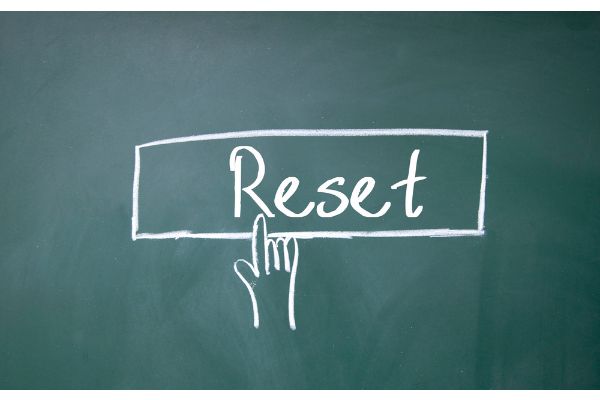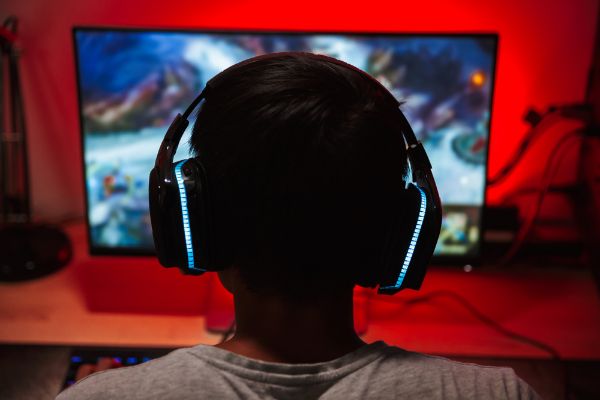Disclaimer: This post may contain affiliate links, meaning we get a small commission if you make a purchase through our links, at no cost to you. For more information, please visit our Disclaimer Page.
Computer manufacturers come out with new models every year, and some people enjoy upgrading to the latest system whenever they can. If you remember when you first got your latest device, it might be easy to understand why this is the case.
A brand new computer that you just set up tends to boot very quickly, and it will load applications in a matter of seconds. While you are running programs, things appear to go very smoothly and with no glitches.
Over time, as you download more content, make changes to settings, add more programs, and just use your computer in general, you may notice that things start to slow down a bit. It may take longer for your computer to start, or programs that used to respond to you quickly now take their time. Although this is normal, it can be frustrating for any computer user.
In today’s article, we will discuss whether resetting your PC entirely might improve its performance. A factory reset restores the computer to how it was when you took it out of the box. We will talk about whether this might improve the performance of resource-intensive programs such as games, specifically.
Furthermore, we’ll try to come up with some guidelines for when a factory reset might be a good idea, how long it might take to do this, and some cautions against performing a reset in the first place.
Table of Contents
Will My PC Get Faster if I Factory Reset It?
A factory reset can fix a slow computer, but it is not a given that it will do so. Speaking very generally, you should see some improvements to your computer’s speed and responsiveness if you reset it to the factory defaults.
This is because you are loading a fresh copy of your operating system back onto the computer. It will have all the basics it needs in order to run, but it will lack the extra programs, potential bloat, and problematic software that may cause errors or slowdowns in the whole system.
However, whether you see other noticeable improvements can also depend on what is the major cause of the sluggishness in your computer. Bloated software is a major contributor to computers running more slowly as time goes on, but hardware problems can also cause issues of their own.
If you have some faulty hardware in your system, a factory reset is unlikely to fix your slow computer. The only way this might be true is if the fault is with some settings for your hardware. Doing a reset should change those settings back to what they were, and you may see the problem clear itself up this way. Otherwise, you may need to get different hardware in order to notice any improvements.
With that said, you can create backups of your data before you do a factory reset. Many operating systems will create restore points that do this for you already, but there are ways you can have more manual control over this feature, too. Once you’ve backed up your data, you may be able to run some tests to narrow down what might be making your system slow down.
To do this, you may have to boot the computer in a different mode or close certain programs one by one until you find the thing that is the major cause of your issues. If you are able to do this, you can perform a clean install of your operating system and avoid downloading the programs that were slowing down your PC before.
The other thing to note is how background processes work. Many programs or applications on a computer run at least some of their processes in the background. They may do this all the time that the computer is on, or they may pop up from time to time, run some calculations, and go away again. In either case, these background processes use up system resources.
When they do, it can make the PC run slower than it would otherwise. Even if you do a factory reset, some crucial applications will still run background processes once you install the OS again. This will happen more as you continue to add the programs you want to use. While you might be able to mitigate some of the sluggishness that these processes cause, they are a natural part of any system.
Does Resetting a PC Improve Game Performance?
As with helping a PC run more smoothly in general, a factory reset can only go so far in helping your machine with its game performance. Like the above, its efficacy will depend on why the computer is running slowly. Games tend to be some of the most resource-intensive programs that a computer handles.
The graphics, things it needs to render, and memory it has to use in order to make sure gameplay is smooth enough can be immense. Furthermore, there are several reasons why a game might not be running well and your system, and some of them have nothing to do with the problems that a factory reset might fix.
Here are some of the common causes for game performance lagging on many systems:
1. You have outdated drivers. Drivers are files that contain sets of instructions telling parts of a computer how to behave. If these are not current, some of the things responsible for helping games run, such as video or audio, might not work correctly.
2. Your hard drive could experience errors that affect how it handles memory. Being able to store and bring up data quickly is essential for making sure modern games run well.
3. Too many background processes could be consuming resources that a computer game might otherwise use for itself.
4. Your PC may have trojans or viruses that also hide inside background processes, and these things can cause errors or data corruption that can lead to games not running well, too.
5. It is possible that your system’s specs simply aren’t able to handle the games you want to play.
If the issue relates to your drivers, you’ll still need to install the most up-to-date version of those you can find, and this is true even if you reset your PC.
A factory reset might correct some hard drive errors, but this may depend on what kinds of things are causing those problems.
However, performing a reset could deal with a lot of the background processes that other programs might use, especially if you are careful about which ones you install again.
Furthermore, a reset should remove most cases of malware that your PC might have, indicating that it could be a big help if you know this is the problem. For hardware specs, you’ll need to upgrade your parts.
When Should I Factory Reset My PC?
Part of the answer to this question will be different from one person to the next. However, we will attempt to establish some basic guidelines as to when you might want to reset your PC to its factory default state.
Many people in the tech world will tell you that it is good practice to reset your computer back to its default state whenever you decide to get rid of or sell it.
Much of the reasoning here has to do with getting rid of any potentially sensitive data that your computer has accumulated over the years. If you only want to improve the performance while keeping your PC, the lines for when to reset it become less clear.
Some people may like to reset their computers on a regular schedule. Of those that do, performing a yearly reset might be quite common. There is no hard rule for when you should reset your PC, but there is little harm in doing so regularly.
In the past, it was much harder to reset your computer completely without the risk of losing some crucial data that was important to you. Today, operating system developers have streamlined the process, and you can back up data, clear out the OS, and put back what you want with relative ease.
In short, resetting your PC may be a good idea if it is significantly slow, and if you know that the problem is a software issue. The reset should take care of lots of the bloat, and it should be able to wipe out much of the malware you might have encountered.
Although virus scanners should be able to pick this stuff up, some malware can hide inside files that the scanners think are legitimate. Performing a factory reset should deal with most of this stuff, although it may not work on all malware.
How Long Can Resetting a PC Take?
Much like the previous question, there is no single answer here. Many factors are involved when you reset a PC, including what storage you are using, how much data is on the computer, and how many files you’d like to keep.
That said, you can expect a typical reset to take at least 30 minutes, and it can go on for up to three hours.
What Are Some Reasons Not To Factory Reset My PC?
One of the main reasons not to reset your PC is that it can restore some of the bloat. In most cases, your fresh computer comes with some programs that the manufacturer puts there. These may not be at all useful to you, but they will take up space and memory regardless.
You’d have to go back and find the programs that you know are of no benefit to you again. Additionally, there is little reason to do it if you know the problem lies elsewhere. There is also the hassle of getting all of your favorite programs and settings up and running once more.
Conclusion
A clean PC reset can be a useful way to deal with software that is causing errors in your computer. It can also help you deal with a lot of the malware that might be hiding inside your system. Taking care of either of these issues can help the PC run more smoothly, but it may not fix everything.


